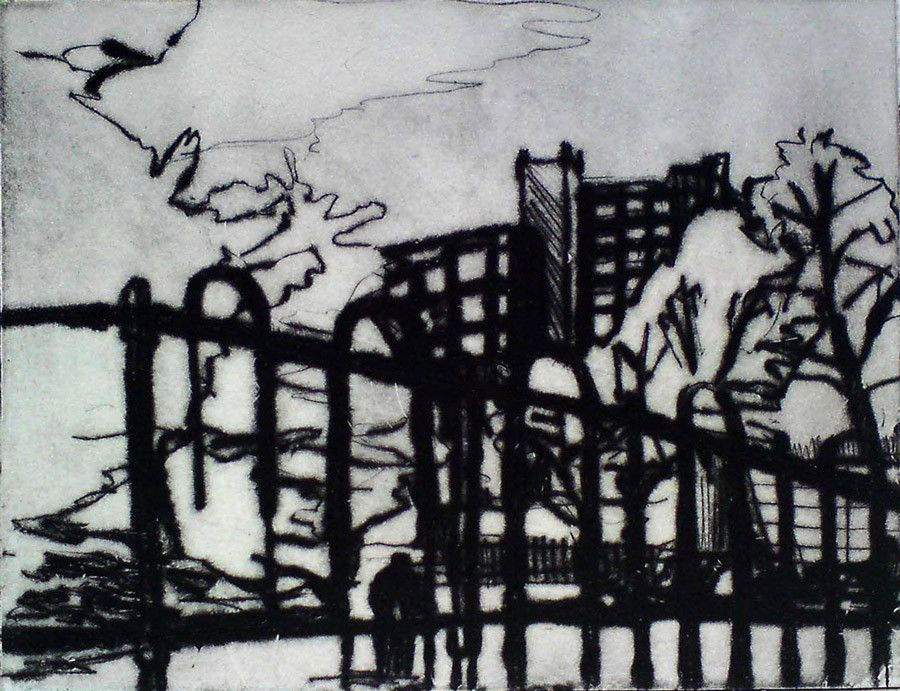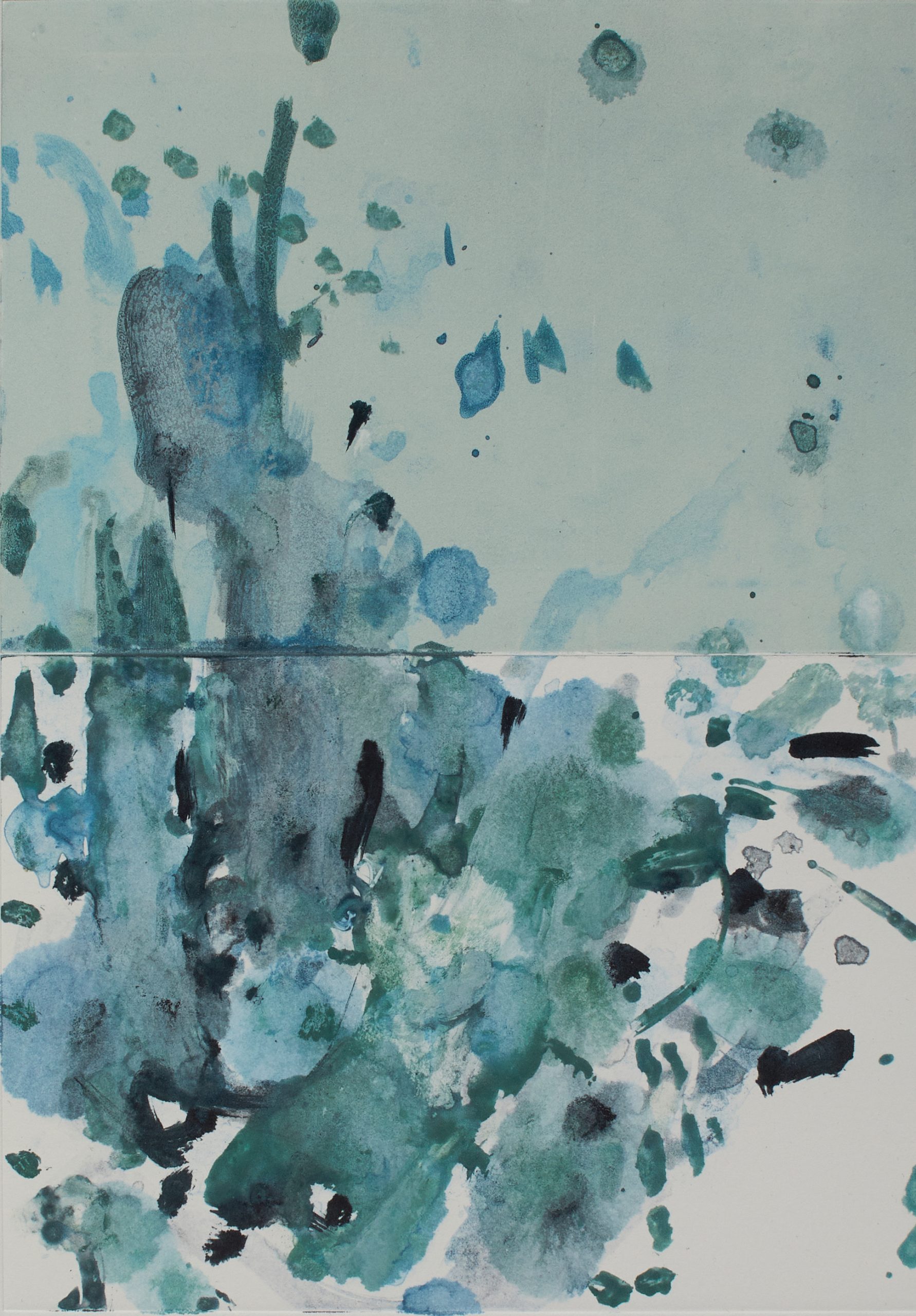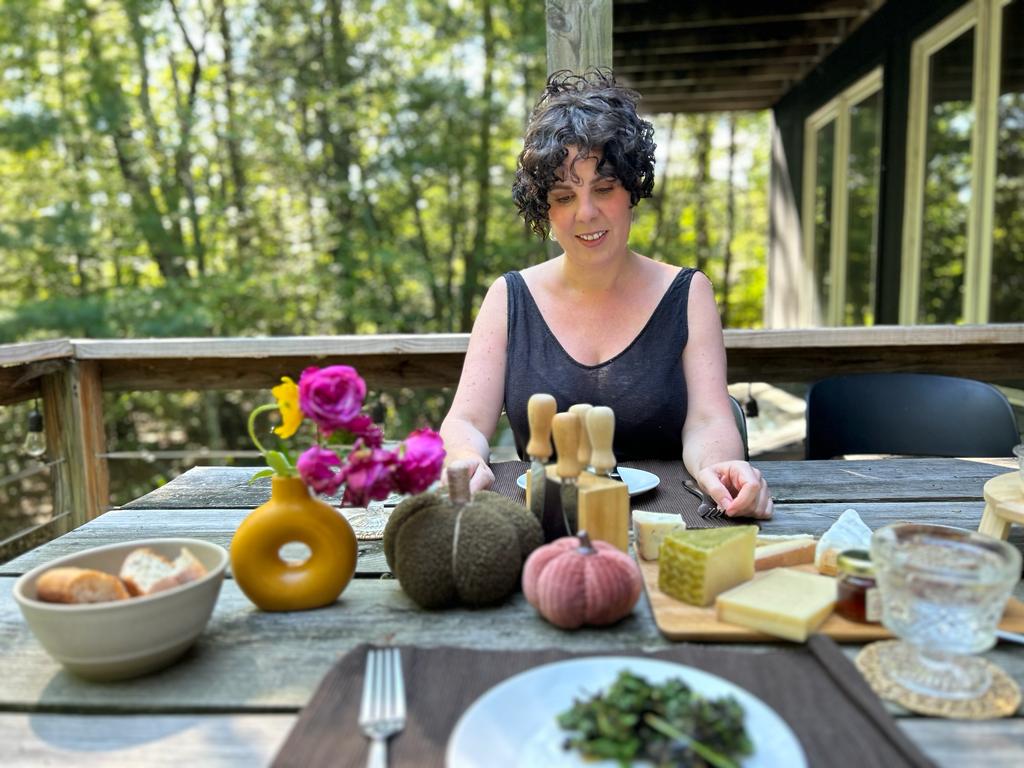
FEATURE
Hard ground
A traditional technique in etching. After degreasing the surface of the plate, hard ground is rolled over the surface.
TECHNIQUE
Hard ground
A traditional technique in etching. After degreasing the surface of the plate, hard ground is rolled over the surface.

Hard ground is made of a mixture of asphaltum, resin and beeswax and is resistant to acid. The ground is softened and spread in a thin layer onto copper, zinc or steel sitting on top of a ‘hot plate’. Once even, the ground is made hard by smoking. The carbon from the smoke also darkens the ground so it is easier to see when drawing.
An etching ‘needle’ is traditionally used to draw into hard ground, revealing a fine thin line, but other ways to make marks include abrading or scratching with non-traditional tools like drill bits or wire wool. Hard ground can also be wiped away or painted with different solvents for more organic shapes.
When the plate is submerged in acid the plate will ‘bite’ in any revealed areas, creating indentations in the metal plate. The longer the plate is in the acid, the deeper the lines and marks will be etched.
After being in the acid the hard ground is cleaned off the plate. The plate is inked intaglio – in the lines, grooves or open areas bitten by the acid.
More printmaking techniques
Carborundum
Abrasive carborundum grit (silicon carbide) is mixed with acrylic medium or glue and painted onto a flat surface, such as plastic or metal.
Lithography
An image is painted, drawn or stencilled onto a slab of limestone or a metal plate (often aluminium) with oily materials, including greasy crayons and pencils, special ink called tusche, and photochemical transfers.
More Features
All featuresDaydreaming through decoration
“I felt like I was in multiple spaces at the same time – the studio, my source material, my paintings – and I really lost myself in the process of making. I had this epiphany that if I inhabited my paintings long enough then the experience of looking at them would contain the dysphoria I felt, because that’s how art works, it’s a sort of a mirror.”
Artist talk: Sarah Gillett
In this podcast episode released by Fermynwoods Contemporary Art, Sarah Gillett talks about her research on how astronauts dream, the promise of future seances, and the joy of collaboration.






